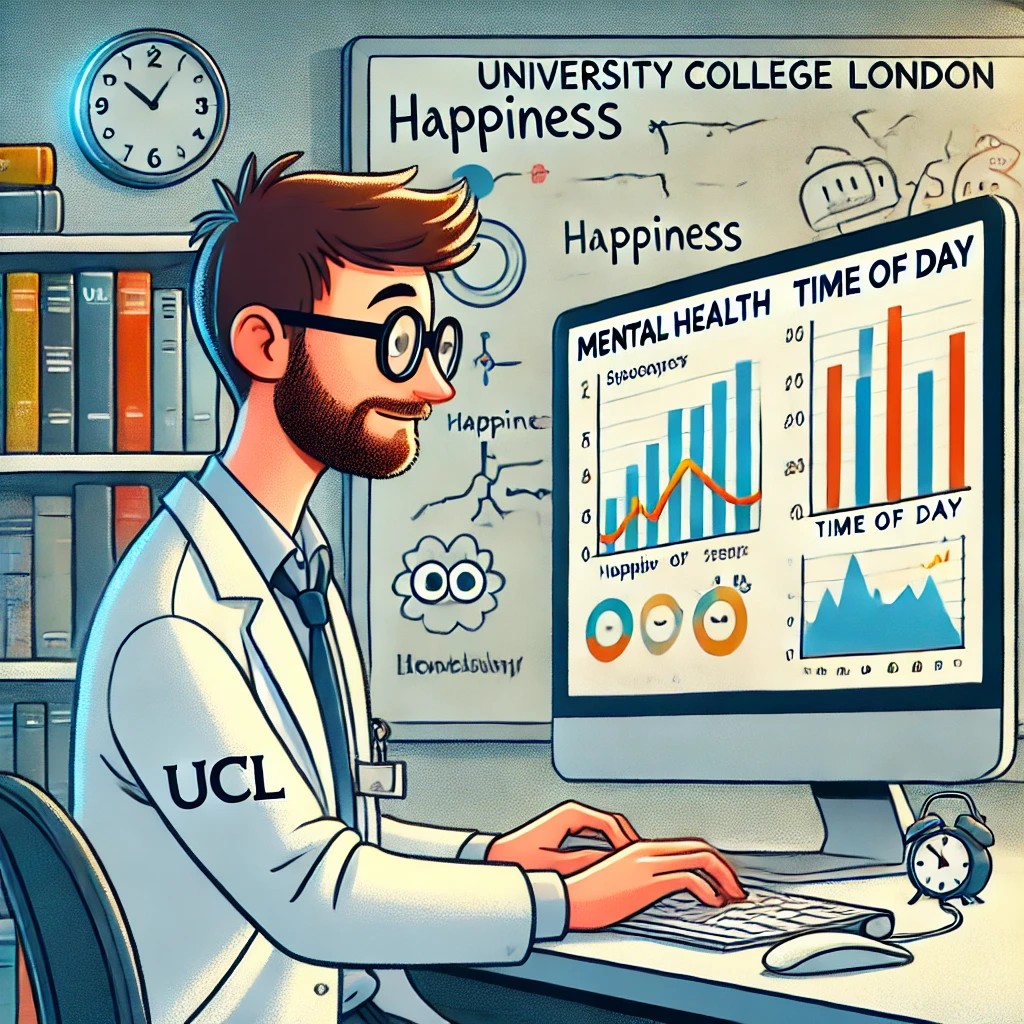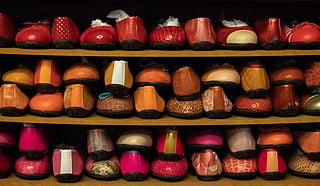A study from University College London found that people feel less happy as the day goes on. They feel the worst at midnight and on Sundays. People start the day feeling good, but feel less happy by night. On weekends, feelings change more than during the week. The study looked at many people over two years.
The study asked people about their happiness and life satisfaction. People felt happier on Mondays, Fridays, and Tuesdays. Loneliness stayed the same all week. The study can’t say exactly why feelings change. It might be because of the body’s clock or different activities on weekends.
Original news source: Scientists find that things really do seem better in the morning (The Guardian)
🎧 Listen:
Slow
Normal
Fast
📖 Vocabulary:
| 1 | study | Learning about something by looking at it closely |
| 2 | happiness | Feeling very good and smiling a lot |
| 3 | midnight | The middle of the night when it is very dark |
| 4 | weekends | The days when you don’t go to work or school, like Saturday and Sunday |
| 5 | satisfaction | Feeling pleased and content with what you have |
| 6 | loneliness | Being by yourself and feeling sad because of it |
| 7 | exactly | When something is just right, with no mistakes |
| 8 | feelings | Emotions like happy, sad, or angry |
| 9 | activities | Things you do for fun or work |
| 10 | clock | A thing that tells you the time with numbers and hands |
Group or Classroom Activities
Warm-up Activities:
– CHARADES
Instructions: Students will take turns acting out different emotions (happy, sad, lonely, etc.) without speaking, while the rest of the class guesses the emotion. This helps them learn vocabulary related to feelings.
– OPINION POLL
Instructions: Students will walk around the classroom asking their classmates how they feel at different times of the day (morning, afternoon, evening, midnight) and on different days (weekdays vs weekends). They will tally responses to see which times are associated with the most happiness.
– VOCABULARY PICTIONARY
Instructions: Divide the class into small groups. Each group will draw a word related to the article (like “happiness,” “weekend,” or “loneliness”) on the board while the others guess what it is. This reinforces vocabulary understanding in a fun way.
– THINK-PAIR-SHARE
Instructions: Students will think about a time when they felt really happy or really sad. They will pair up with a partner to share their experiences and then share with the class. This encourages speaking practice and personal connection to the material.
– HEADLINE CREATION
Instructions: Students will work in pairs to create a catchy headline that summarizes the main idea of the article. After they’ve created their headlines, they will share them with the class. This activity helps with summarization and creative thinking.
🤔 Comprehension Questions:
1. Where did the study about happiness come from?
2. What time do people feel the least happy?
3. When do people feel happier, on Mondays or on Sundays?
4. How long did the study look at people’s feelings?
5. What do people feel on weekends compared to weekdays?
6. What did the study ask people about?
7. What might change people’s feelings, according to the study?
Go to answers ⇩
🎧✍️ Listen and Fill in the Gaps:
A study from University College London found that (1)______ feel less happy as the day goes on. They feel the worst at midnight and on (2)______. People start the day (3)______ good, but feel less happy by (4)______. On weekends, feelings change more than during the week. The study looked at many people over two years.
The study (5)______ people about their happiness and (6)______ satisfaction. People felt happier on Mondays, Fridays, and Tuesdays. Loneliness stayed the same all (7)______. The (8)______ can’t say exactly why feelings change. It might be because of the body’s clock or different activities on weekends.
Go to answers ⇩
💬 Discussion Questions:
Students can ask a partner these questions, or discuss them as a group.
1. What is a happy day for you?
2. How would you feel if you had a fun day?
3. Do you like Sundays? Why or why not?
4. What is your favorite day of the week?
5. How do you feel when it gets dark outside?
6. Do you think people are happier in the morning or at night? Why?
7. What makes you happy?
8. How would you feel if you had a busy day?
9. Do you like being alone sometimes? Why or why not?
10. What is a fun thing you do on weekends?
11. Do you think people are happier with friends or alone? Why?
12. How do you feel when you wake up in the morning?
Individual Activities
📖💭 Vocabulary Meanings:
Match each word to its meaning.
Words:
1. study
2. happiness
3. midnight
4. weekends
5. satisfaction
6. loneliness
7. exactly
8. feelings
9. activities
10. clock
Meanings:
(A) The days when you don’t go to work or school, like Saturday and Sunday
(B) The middle of the night when it is very dark
(C) Feeling very good and smiling a lot
(D) Feeling pleased and content with what you have
(E) Things you do for fun or work
(F) Learning about something by looking at it closely
(G) Being by yourself and feeling sad because of it
(H) A thing that tells you the time with numbers and hands
(I) Emotions like happy, sad, or angry
(J) When something is just right, with no mistakes
Go to answers ⇩
🔡 Multiple Choice Questions:
1. What day do people feel the worst?
(a) Monday
(b) Tuesday
(c) Friday
(d) Sunday
2. When do people feel happy?
(a) Saturday
(b) Wednesday
(c) Thursday
(d) Monday
3. What time do people feel the least happy?
(a) Morning
(b) Midnight
(c) Afternoon
(d) Evening
4. How long did the study look at people?
(a) One year
(b) Two years
(c) Three years
(d) Four years
5. What stays the same all week?
(a) Loneliness
(b) Happiness
(c) Sleepiness
6. What might change feelings on weekends?
(a) More sleep
(b) Less food
(c) Different activities
(d) More friends
7. What is the name of the school that did the study?
(a) Harvard University
(b) Oxford University
(c) University College London
(d) Stanford University
8. What do people feel at the start of the day?
(a) Good
(b) Bad
(c) Tired
(d) Angry
Go to answers ⇩
🕵️ True or False Questions:
1. Feelings change more on weekends than on weekdays.
2. The study asked few people about their happiness.
3. People feel happier on Wednesdays, Saturdays, and Thursdays.
4. People feel the saddest at noon and on Mondays.
5. A study from University College London looked at how happy people feel.
6. The study knows exactly why feelings change.
7. People feel less happy as the day goes on.
8. People start the day feeling good.
Go to answers ⇩
📝 Write a Summary:
Write a summary of this news article in two sentences.
Check your writing now with the best free AI for English writing!
Writing Questions:
Answer the following questions. Write as much as you can for each answer.
Check your answers with our free English writing assistant!
1. When do people feel the happiest during the week?
2. What day do people feel the least happy?
3. How do people feel on Sundays?
4. What did the study look at for two years?
5. Why might people feel different on weekends?
✅ Answers
🤔✅ Comprehension Question Answers:
1. Where did the study about happiness come from?
It came from University College London.
2. What time do people feel the least happy?
People feel the least happy at midnight.
3. When do people feel happier, on Mondays or on Sundays?
People feel happier on Mondays.
4. How long did the study look at people’s feelings?
The study looked at people’s feelings for two years.
5. What do people feel on weekends compared to weekdays?
People’s feelings change more on weekends than on weekdays.
6. What did the study ask people about?
The study asked people about their happiness and life satisfaction.
7. What might change people’s feelings, according to the study?
It might be the body’s clock or different activities on weekends.
Go back to questions ⇧
🎧✍️✅ Listen and Fill in the Gaps Answers:
(1) people
(2) Sundays
(3) feeling
(4) night
(5) asked
(6) life
(7) week
(8) study
Go back to questions ⇧
📖💭✅ Vocabulary Meanings Answers:
1. study
Answer: (F) Learning about something by looking at it closely
2. happiness
Answer: (C) Feeling very good and smiling a lot
3. midnight
Answer: (B) The middle of the night when it is very dark
4. weekends
Answer: (A) The days when you don’t go to work or school, like Saturday and Sunday
5. satisfaction
Answer: (D) Feeling pleased and content with what you have
6. loneliness
Answer: (G) Being by yourself and feeling sad because of it
7. exactly
Answer: (J) When something is just right, with no mistakes
8. feelings
Answer: (I) Emotions like happy, sad, or angry
9. activities
Answer: (E) Things you do for fun or work
10. clock
Answer: (H) A thing that tells you the time with numbers and hands
Go back to questions ⇧
🔡✅ Multiple Choice Answers:
1. What day do people feel the worst?
Answer: (d) Sunday
2. When do people feel happy?
Answer: (d) Monday
3. What time do people feel the least happy?
Answer: (b) Midnight
4. How long did the study look at people?
Answer: (b) Two years
5. What stays the same all week?
Answer: (a) Loneliness
6. What might change feelings on weekends?
Answer: (c) Different activities
7. What is the name of the school that did the study?
Answer: (c) University College London
8. What do people feel at the start of the day?
Answer: (a) Good
Go back to questions ⇧
🕵️✅ True or False Answers:
1. Feelings change more on weekends than on weekdays. (Answer: True)
2. The study asked few people about their happiness. (Answer: False)
3. People feel happier on Wednesdays, Saturdays, and Thursdays. (Answer: False)
4. People feel the saddest at noon and on Mondays. (Answer: False)
5. A study from University College London looked at how happy people feel. (Answer: True)
6. The study knows exactly why feelings change. (Answer: False)
7. People feel less happy as the day goes on. (Answer: True)
8. People start the day feeling good. (Answer: True)
Go back to questions ⇧














